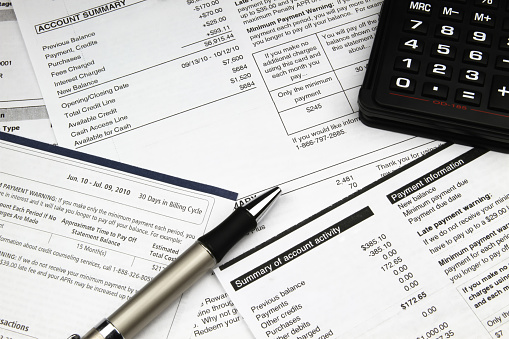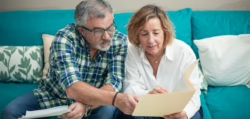Retirement money mistake Number 5 can sometimes cost you the most. This happens when you don’t know what you don’t know and make decisions based on a poor understanding of the rules.
Remember the excitement of turning 21? The best part of becoming an adult was the fact you could now set your own rules. And that, of course, meant the fun of getting things right – and wrong.
But as much as we’d like to think, as older adults, that we call the shots, there are external rules that dictate much of what we can and can’t do.
Obvious current examples are health and travel rules and regulations.
And when it comes to money, it’s the government and regulatory bodies who really call the shots. And unless you are across these frequently changing, often perplexing rules, there is a very real risk that you could endanger your precious retirement nest egg.
Take Susan and Geoff’s decision to downsize as an example.
The sale of the family home and purchase of a smaller apartment in another suburb was both an emotional and financial drain. They had wanted to free up money from their previous home in order to fund a more comfortable lifestyle. But the work involved in the sale, the real estate agency costs, moving expenses, new body corporate fees and tax ate up most of the profit they had planned to live on (as a supplement to their account based pension). Susan doesn’t like the new neighbourhood as much as the old one, and there is precious little play space when grandchildren come to visit.
Sadly the move was not necessarily the best option for this couple. As Susan is on a carer’s payment, they could have qualified for the Pension Loans Scheme, which would have freed up capital, paid as a fortnightly amount, and allowed them to stay where they had lived happily for more than 30 years. The loans scheme was introduced in 1985 but revamped in 2019. It is below the radar for a lot of retirees. Susan and Geoff had heard about it but assumed they wouldn’t qualify.
Assumptions are often gateways to mistakes. And this is why a thorough knowledge of the rules is so important.
Some decisions in retirement are bigger than others. These include moving home, helping family financially, paying off mortgages and lump sum decisions. There are many Centrelink rules which might apply. But there are also rules relating to tax, superannuation, and estate planning that may affect rules for those who are self-funded. These rules can have a direct effect on your financial and emotional wellbeing. Few people are across all the rules, but experienced advisers can draw your attention to pitfalls, and refer you to other professionals with specific expertise as needed.
Don’t risk finding out the rules after it’s too late to change your decision.
Our team know the rules and the system and can help you apply for the Age Pension or the Commonwealth Seniors Health Card






Good morning, I am a Pensioner, own no property, and am renting. My only assets are proceeds from sale of home overseas, only $150,000 in total. Centrelink “deems” that I could get x % interest on a fixed term deposit. Well, I am only getting 0.3% which is pitiful. Centrelink is adamant about this “deeming” clause. It is so unfair that I cannot earn more. In March it will mature and I will only get about ?$430 for the whole year. And thus, my pension is less than I think my entitlements would show. The recent increase is a joke. It’s $7 per week for me.
Hi.what is pension loans scheme,and how do i find out more about it
Hi Michal. Here is our article on the pension loan scheme
Regards
Hello, I plan to retire in April 2022 when I turn 65.5. How much income per week can I earn so that my pension will not be effected?
10/12/2022… We are a pensioner couple about to sell our family home of 46 years to downsize and move closer to family. I understand that the government has passed a bill on 25/11/2022, “Incentivising Pensioners to Downsize” offering a reduced deeming rate on sale proceeds and an extra 12 months to buy or build a new home before the funds are counted as assets. I believe it takes effect on 1/1/2023. My question is what are the eligibility time- frame criteria? Is it when we sign a contract or when funds go into our account. We are about to sign but should we wait 3 weeks? Another question is whether this bill has received royal assent. I have tried all manner of institutions, departments, local member to find the official ruling to no avail. Please help.
Hi Joanne. There are a few different time periods depending on what you choose to do. The downsizer contribution to super needs to be made within 90 days of you receiving the proceeds for the sale of your house. The proceeds of the sale are exempt form the assets test for 24 months – an additional 12 months as you quite rightly pointed out – and the deeming rate on the proceeds up until 30 June 2024 will be just 0.25%
“If you sold your property for $600,000, and had the intention to buy a unit for $450,000, that $450,000 would be considered an exempt asset for 12 months, and the remaining $150,000 would be assessed as part of your assets. Centrelink will also deem that you’re receiving income from the money you received from the sale of your home. Centrelink will assess the deemed income from the $600,000 until you purchase a new property.”
So this means the income test still applies, is this correct.
Hi David, thank you for your comment! Yes you have understood it correctly, whilst the balance you intend to use to the new house is exempt from the assets test it is still deemed to earn income toward your income test.